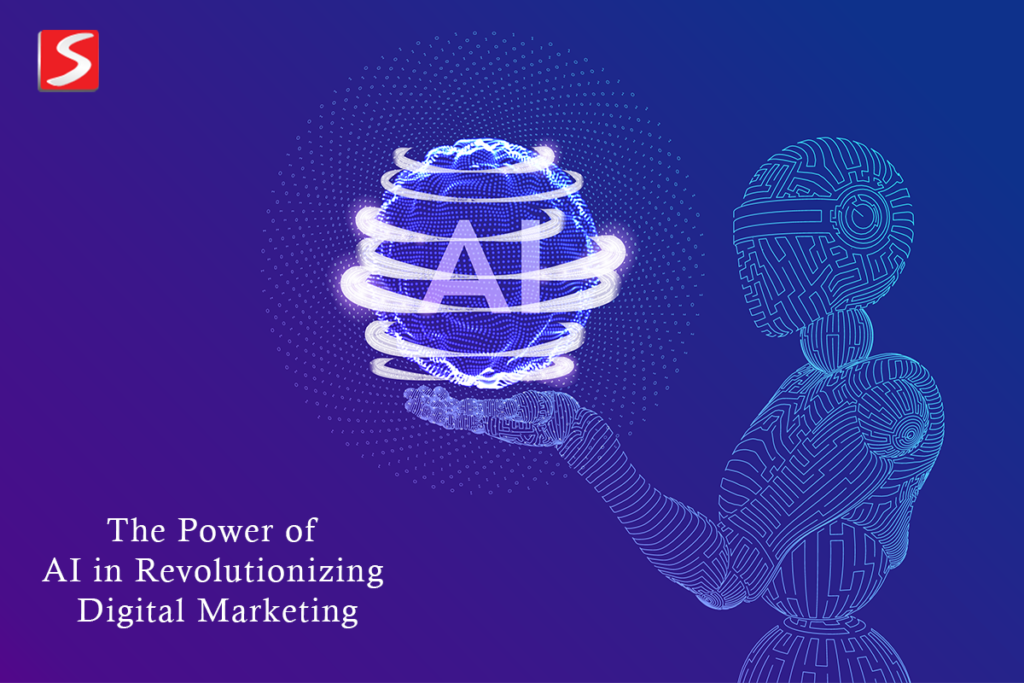
You may or may not know it yet, but Artificial Intelligence (AI) is rapidly becoming more central to the day-to-day digital world, and the marketing and advertising world is no exception.
AI is a fairly generalized term that encompasses different approaches and technologies that are set up to “think” like humans. It is already incorporated into many technologies you probably already know about, such as voice recognition and chatbots.
Below, I’ll introduce you with a few of the fascinating elements and applications of AI technology, and explain why it’s about to become vital to almost every aspect of the digital marketing landscape.
1. Artificial Intelligence and SEO
Search Engine Optimization is one domain, which is most affected by AI right now. Machine learning is directly affecting site visibility, and its effect will only increase in the future.
A machine learning algorithm called RankBrain is currently Google’s third most important ranking signal. In the past, Google’s developers watched search results and tweaked algorithms to better suit search needs.
With RankBrain, no person will know why content is ranked up or down. The algorithm will constantly be testing and refining settings based on user behavior.
This switch means some traditional SEO activities, like keyword lists and backlinks, will decrease in importance. The ranking signals which are of most importance will be those related to user activity.
Any indicator that displays how a user found your content valuable is now an SEO indicator. SEO experts and content creators will need to work more closely together to make sure content meets a definite search need, addresses a specific audience, and is persuasive.
That’s not to say technical SEO is dead, but it is growing. SEO experts should focus on structuring data, applying schema, executing AMP, and enhancing for voice search.
2. Artificial Intelligence and Chatbots
Chatbots are AI-driven programs that communicate with users in a natural-language environment. These programs are swiftly becoming a key area of interest for marketers, as an growing amount of social media traffic takes place on private messaging services like WhatsApp and Facebook Messenger. Buffer’s annual social media report found that there are more people on the top four messaging apps than on the top four social media apps (Facebook, Instagram, Twitter and LinkedIn). That’s an engagement prospect that’s hard to overlook. And, of course, chatbots can live on your brand’s homepage, replying to questions and providing support.
Most digital marketers see chatbots as a way to provide tailored customer service at scale – which is indirectly related to marketing, but not directly a marketing function. However, chatbots can also help guide users through a customer journey to a sale.
A lot of the chatter around chatbots is how to make them indistinguishable from networking with a human. Marketers seem to care a great deal about this issue, but I would argue customers don’t. Customers want their questions to be understood and quickly answered; it doesn’t matter if it’s Robby the Robot or Robby the Call Center Rep who has the answers.
Marketers can make use of chatbots themselves, too. There are a growing number of smart assistants available that can cumulate and report on data in real-time, through Slack and other private messaging services.
3. Artificial Intelligence and Content Marketing
A report states that, by the end of the year, 20% of business content will be written by machines. AI is already being used for everything from white papers to making reports.
Should you be worried about your job? No. For one, AI right now isn’t quite ready to draft content with character and a strong hook for the reader. Since SEO is progressively about the reader’s experience, which means human-crafted content will win out for the predictable future. And even when AI can write influentially like a human, it will still need creative input from humans.
You must use AI to take care of repetitive, mindless tasks like metadata tagging and adding suggested content to blog posts. And use it to deliver tailored content at scale. AI can use data from your site’s visitors to vigorously modify and display the content you create.
As the content creator, part of your new AI-enhanced job will be to look at how your audience can be segmented by behavior, and draft modular content that the AI can put together based on user behavior.
Email marketing remains one of the most effective forms of marketing. 61% of consumers enjoy receiving weekly promotional emails. Which may explain why email marketing has higher conversion rates than social media and search combined.
AI is making email marketing even better, both for you and your customer. AI can use files to create personalized emails to every one of your subscribers, based on their earlier communication with the brand. It can modify based on what content they’ve consumed, what’s on their wish list, what pages they have spent the most time on, and more. For example, if one user constantly visits links to product pages in your email, but another skips those links and goes straight for content, the AI can send different messaging with the most appropriate links for each user.
AI is also making drip campaigns more sophisticated. Instead of one or two activates and a few customized emails, you can use “If/Then” statements to customize emails for dozens of different triggers. Rather than, “send an email in two weeks,” or “send another if they opened the last one,” you could say, “if they visited three product pages, send an email with a link to a related blog post and recommended products other people have purchased.”
AI has only begun to make its mark on the world. As the technology continues to grow, so will marketing technology. To keep up, marketers must track consumer reaction and determine the suitable application for each new technology. How has AI worked for you?